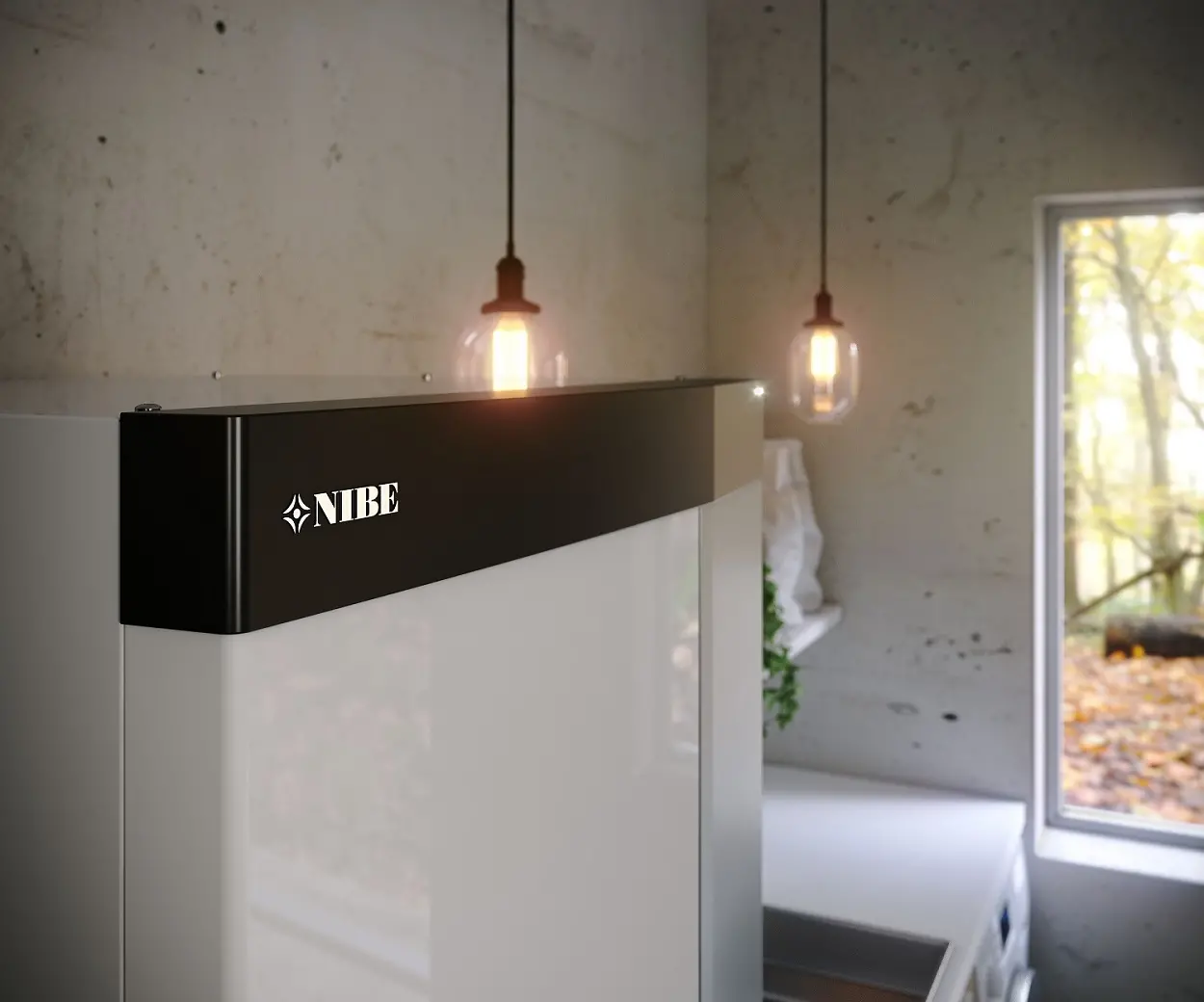How many years does a heat pump last?

Your questions answered
Heat pumps are fast becoming the go-to renewable energy solution for heating homes around the world. As awareness about heat pumps continues to grow and more homeowners become interested in their energy-saving capabilities, suppliers such as NIBE have experienced a rapid increase in interest.
With interest comes questions. That’s why we have put together this helpful guide answering all of your important questions surrounding the longevity of heat pumps and the amount of maintenance they require. Whether you want to know how many years a heat pump lasts, when it should be replaced or if a system loses efficiency with age, we’ve got you covered.
How many years does a heat pump last?
Heat pumps are long-lasting and have a typical lifespan of 20 to 25 years. In the past, the average life expectancy would have been approximately 15 years, but technological advancements have meant you can now expect your unit to last longer.
However, there are some factors that could impact how long a heat pump lasts. These include the type of heat pump, whether it’s well-maintained, how much it’s used and environmental conditions. For example, ground source heat pumps tend to last slightly longer than air source heat pumps.
Can a heat pump last 20 years?
Yes, these days you’d have to be pretty unlucky for your heat pump to not last more than 20 years. However, you will need to ensure it’s properly installed and maintained. You should always choose to employ a fully-trained heat pump professional from a reputable company.
Failure to do so means you’re at risk of having a heat pump that doesn’t run as efficiently as it should and is likely to need replacing ahead of schedule.
What maintenance does a heat pump need?
Regular maintenance is important to ensure your heat pump rewards you with longevity and maximum efficiency. Even if your heat pump appears to be running well, we recommend that you still get it serviced once a year to ensure it’s in top condition.
Some maintenance tasks that will need to be performed fairly regularly include:
- Cleaning and replacing air filters: Air filters can become dirty or clogged, reducing efficiency and potentially damaging the system. They’ll need to be cleaned regularly and replaced when necessary.
- Checking refrigerant levels: Insufficient or excessive refrigerant can impact a heat pump's performance. Refrigerant levels should be checked as part of your annual service and adjusted accordingly.
- Inspecting coils: Evaporator and condenser coils can accumulate dirt and dust, reducing airflow and efficiency. Again, this should be checked by a professional annually when your heat pump is serviced. They’ll need to be cleaned and often replaced.
- Cleaning ducts: Ductwork should be checked for signs of leaks, damage or obstructions. They’ll need to be cleaned, repaired and sealed where necessary.
- Checking thermostat settings: It’s important to make sure that the thermostat is functioning properly. If you use a smart thermostat, it’s worth regularly checking it’s programmed correctly so you don’t overspend.
- Monitoring electrical issues: Electrical connections, controls and terminals should all be inspected for signs of wear.
- Cleaning the outdoor unit: Especially relevant in the autumn and winter months, you need to remove any debris, leaves or other obstructions from the outdoor unit to allow for proper airflow.
While some of the regular maintenance tasks you can perform yourself, we advise you to seek help from a professional for some of the more complex jobs.
How can I extend the life of my heat pump?
To extend the life of your heat pump, you’ll need to make sure it’s regularly maintained, used properly and any issues are dealt with quickly. Here are a few top tips to boost the lifespan of your heat pump system.
- Make sure it’s maintained and serviced by a heat pump professional. At least once a year.
- Conduct your own maintenance by keeping it clean and checking for faults.
- Ensure it’s installed properly by a qualified professional.
- Don’t overuse it.
- Keep it protected from extreme weather conditions.
- Maintain proper airflow.
- Address issues quickly.
- Upgrade or replace your system when required.
How do I know if my heat pump needs replacing?
It’s unlikely that your heat pump will need replacing before you’ve had it for 20 years. However, in some cases, you may be required to replace it earlier. Whether you’ve had it for 15 years or 30 years, there are some signs that suggest your heat pump may need replacing.
- You’re having to frequently repair your heat pump: Sometimes it’s more cost-effective to have it replaced than to keep forking out for constant maintenance.
- The heat pump becomes less efficient: If you notice a significant increase in your energy bills or the system is struggling to maintain desired temperatures, then it may need replacing.
- Starts making unusual noises: Grinding or banging noises could indicate mechanical issues within the heat pump. Similarly, if it starts running louder than normal, you may want to consider a new unit.
- Performance starts becoming inconsistent: Strange patterns in heating or cooling performance throughout your home suggest the heat pump is struggling to perform effectively.
Is it easy to replace a heat pump?
As long as you use a qualified professional with plenty of experience dealing with heat pump systems, then replacing a heat pump is a straightforward process. They’ll have the right knowledge, skills, tools and safety equipment to install a new heat pump with minimal fuss.
Usually, it will take a professional two to five days to complete the whole process. During this time they’ll assess your specific needs, provide recommendations and ensure the installation is performed correctly.
Can you replace a heat pump yourself?
No, we don’t recommend that you replace a heat pump yourself. Unless you’re a technically skilled individual with experience in replacing heat pump systems, it’s best left to the professionals – this isn’t a standard DIY job!
There are plenty of complexities and potential risks associated with replacing a heat pump, which is why employing a professional with the right skill set, equipment and safety measures is a better bet.
Do heat pumps lose efficiency with age?
Yes, unfortunately, a heat pump will lose efficiency with age. However, there are some preventative measures you can take to limit the negative impact time has on your system. These include regular maintenance and cleaning, protecting your outdoor unit from extreme conditions, not overusing your heat pump unnecessarily and getting it installed properly in the first place.
As long as you tick all of the boxes above, then the amount of efficiency your heat pump loses will be minimal and probably won’t have a massive impact until it's 25+ years old and needs replacing.
Does it hurt a heat pump to run constantly?
If your heat pump is running constantly, then it may cause your system to overwork and have a shorter lifespan. However, heat pumps are usually programmed to heat a home in accordance with the time of year and temperature demands. For example, in the winter your heat pump will need to work longer and harder to provide heat.
This means that while your heat pump is always switched on, it will only run at a level that’s required to heat or cool your home, so it won’t be constantly running at full tilt.
Where can I get my heat pump serviced?
It’s important to get your heat pump serviced annually by a qualified professional to ensure it runs efficiently and remains cost-effective. Selecting an engineer to service your heat pump can be a minefield, with hundreds of different companies in the UK to choose from.
By choosing NIBE, you’re receiving the best customer service in the business and have access to a network of reliable, trustworthy heat pump engineers.
Get in touch with a member of our team today for more information about how to get your heat pump serviced.

Talk To A NIBE Expert
Had more thought about getting a heat pump installed?
Speak to a NIBE Expert today about your project and we'll put you in touch with one of our NIBE Pro Installers.

